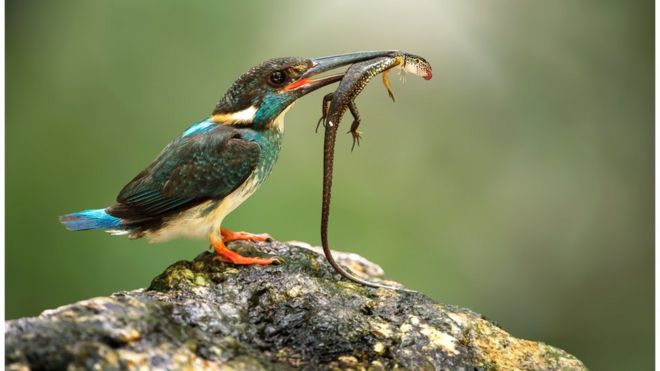
Tropical species are particularly vulnerable
Many species will not be able to adapt fast enough to survive climate change, say scientists.
A study of more than 250 plants and animals suggests their ability to adapt to changes in rainfall and temperature will be vastly outpaced by future climate change.Amphibians, reptiles and plants are particularly vulnerable, according to US researchers.
And tropical species are at higher risk than those in temperate zones.
Some animals might be able to move geographically to cope with rising temperatures, but others live in isolated areas where they cannot move, such as in nature reserves or on mountains or islands.
Ecologists analyzed how quickly species had changed their climatic niches (the conditions where they can survive) over time, and how these rates compared with that of global warming.
They analyzed 266 populations of plants and animals, including insects, amphibians, birds, mammals and reptiles.
Rates of change in climatic niches by species were much slower than rates of projected climate change, by more than 200,000 times (on average), they said.
"Overall, our results show that rates of climatic niche change among populations of plants and animals are dramatically slower than projected rates of future climate change," said Tereza Jezkova and John Wiens, of the University of Arizona.
Double jeopardy
Mammals and birds might be better placed to survive than amphibians and reptiles, because they had the ability to regulate their own body temperatures, said Dr Wiens.And, while some species might be able to move to higher latitudes or elevations to survive, "for a lot of organisms, that is not an option".
"It's a double jeopardy of climate change and habitat destruction".
It takes generations upon generations for living species to evolve and adapt to new circumstances and environments. Most species of wildlife, including many mammals,
no longer have the time to evolve before being driven to extinction.
According to the UN Environment Program, the Earth is in the midst of a mass extinction of life. Scientists estimate that 150-200 species of plant, insect, bird and mammal become extinct every 24 hours. This is nearly 1,000 times the “natural” or “background” rate and, say many biologists, is greater than anything the world has experienced since the vanishing of the dinosaurs nearly 65m years ago.
Pass the word along my friends. Encourage people to look these facts up themselves.

No comments:
Post a Comment